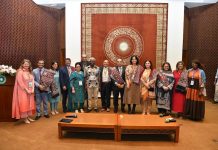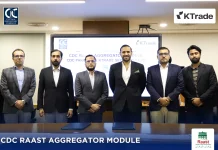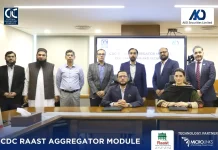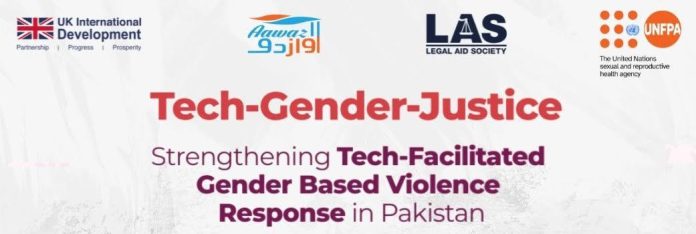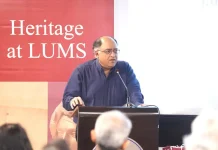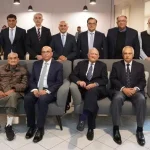The Legal Aid Society (LAS), in collaboration with the United Nations Population Fund (UNFPA), UK AID and the Foreign, Commonwealth and Development Office (FCDO), launched a pioneering study titled “Technology-Facilitated Gender-Based Violence (TFGBV) in Pakistan: Critical Gaps in the Justice System and Pathways Forward.”
Held under the theme Tech–Gender–Justice, the event gathered representatives from government, law enforcement, academia, and civil society to call for stronger digital safety frameworks for women and gender minorities in Pakistan.
Opening the event, Ms. Maliha Zia, Director of Gender, Inclusion & Development at LAS, highlighted the growing intersection of gender and technology, emphasizing that digital safety is a core justice issue.
“We need localized mechanisms to empower and protect all men, women, and transgender persons in online spaces,” she said.
Ms. Gulnara Kadyrkulova, Deputy Representative of UNFPA, stressed the need for survivor-centered and multi-sectoral responses to TFGBV as Pakistan’s digital transformation accelerates. Mr. Matt Clancy, Senior Governance Adviser and Group Head at FCDO, reaffirmed the UK’s support for strengthening institutional capacity and governance to combat TFGBV.
Presenting key findings, Senior Superintendent of Police Amna Baig, Lead Researcher, shared alarming evidence of online abuse targeting women politicians, journalists, and human rights defenders. She noted that TFGBV is deeply systemic, rooted in patriarchal norms that extend into digital spaces.
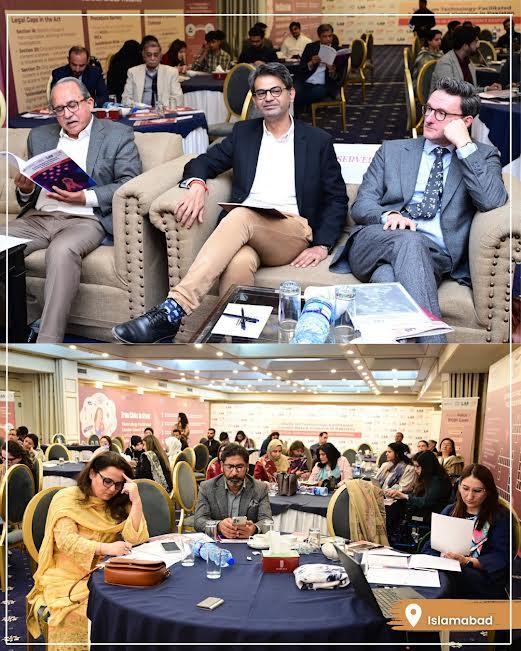
The study revealed that existing laws, including the Prevention of Electronic Crimes Act (PECA) 2016, remain insufficient to tackle emerging digital harms such as deepfakes, doxxing, and image-based abuse. It called for urgent legal reforms, improved survivor support, and greater institutional coordination to ensure safer and more accountable online environments.
Ms. Nargis Raza, Deputy Director of the National Cyber Crime Investigation Agency (NCCIA), noted that “AI-generated images and videos are among the biggest challenges in cybercrime,” reaffirming NCCIA’s commitment to legislative improvements, specialized training, and nationwide expansion of cybercrime units.
Mr. M. Ikram, Director General of the Pakistan Electronic Media Regulatory Authority (PEMRA), emphasized the media’s role in promoting responsible digital narratives and protecting women’s voices in online spaces.
Delivering the keynote address, Mr. Abdul Khalique Shaikh, Federal Secretary, Ministry of Human Rights, commended LAS and its partners for bridging evidence and policy, urging collaboration among state institutions, tech platforms, and civil society to uphold digital rights and dignity.
The event concluded with a networking session, fostering future collaborations under the Tech–Gender–Justice framework — toward a safer, more equitable digital Pakistan.
Also Read: Legal Aid Society of Pakistan Receives 2025 Community Champion Award from Street Law, Inc.




